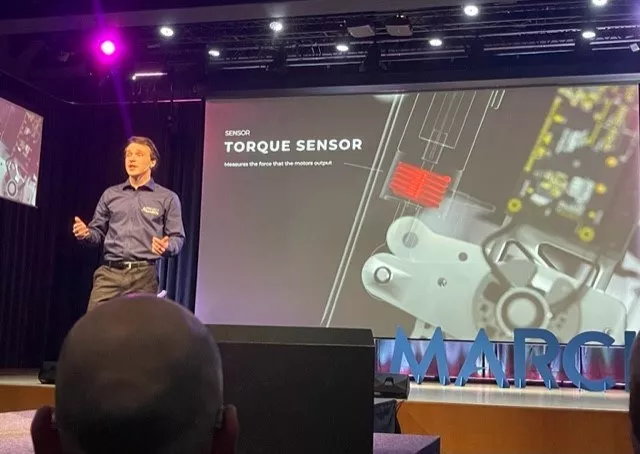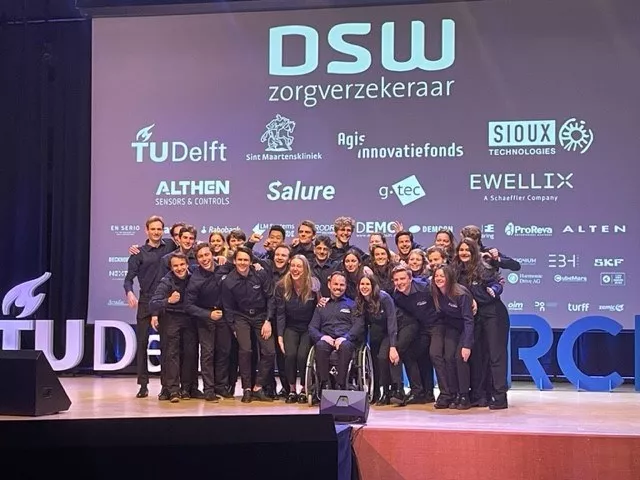28 February 2023
An exoskeleton allows people with spinal cord injury to walk again. Althen Sensors & Controls supports Project MARCH 8. The student team aims for this Summer to make the pilot's crutches redundant.
Project MARCH is a long-term student team from TU Delft. For a year the participating students put their studies on hold to devote themselves full-time to further improving the exoskeleton. The exoskeleton developed by the team will consist of various joints that need to move smoothly and precisely. To achieve this, Althen Sensors & Controls will provide custom torque sensors, linear load cells and provide further technical support for the joints of the exoskeleton.
Self balancing exoskeleton
With the exoskeleton, a motorised type of harness best described as a robot suit, the pilot is able to stand and walk. Thanks to the innovations by the students of Project MARCH 7, it could now even be brain-controlled. Last year the exoskeleton was fitted with depth cameras that allow it to adjust the height of its steps according to the surface. The goal for this year is that the pilot will be able to walk without the crutches that are still needed now. Everything is directed towards the first self balancing exoskeleton. Project MARCH focuses on an exoskeleton that allows the pilot to walk outdoors, and thus should be also be able to deal with kerbs and other uneven surfaces.

March 8 Design presentation
MARCH 8 has showed the design at the Aula of the TU Delft. The team welcomed more than 500 visitors. In their presentation the new design of the exoskeleton was presented. Using a render video, graphic drawings and a number of other videos, the future of the exoskeleton was presented.
Torque sensors are crucial
By focussing on balance, users have their hands free. The back pack, or the brains of the skeleton, received an upgrade. The exoskeleton takes over the movements of the body using 8 motors, or joints in the hips, knees and anckles. It is heavily redesiged with sensors that can measue the force of the motors, or joints. These sensors are for the rotational joints and the lineair joints. Implementing torque sensors is essential for creating a self balancing exoskeleton. Due to the accurcy of the sensors small corrections are possible. All the torque sensors are custom build and are placed in loadcells. Work is also continuing on brain activity control through EEG technology.

The Walk without crutches
The team will now start producing and testing the exoskeleton. As stated, in this version, the focus is on balancing the exoskeleton, which should allow users to walk without crutches. The aim is that Koen van Zeeland, the pilot of the current exoskeleton, will no longer need aids when walking this summer. After being the pilot of March 6 & 7, he is back to walk in the March 8.
At Althen we all fully support you, Team Project MARCH 8! We wish you all the possible fortune and fun towards Koen's walk on the 21st of July 2023.
